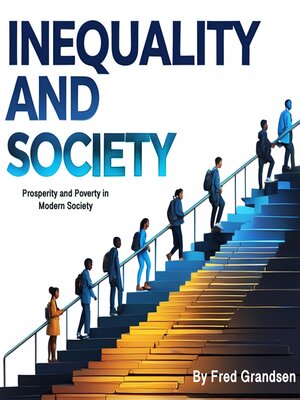Inequality and Society
audiobook (Unabridged) ∣ Prosperity and Poverty in Modern Society
By Fred Grandsen

Sign up to save your library
With an OverDrive account, you can save your favorite libraries for at-a-glance information about availability. Find out more about OverDrive accounts.
Find this title in Libby, the library reading app by OverDrive.



Search for a digital library with this title
Title found at these libraries:
| Library Name | Distance |
|---|---|
| Loading... |
Social inequality is a fundamental issue in societies around the world, shaping access to resources, opportunities, and quality of life. It refers to the uneven distribution of wealth, power, and privileges among individuals and groups, often determined by factors such as class, race, gender, and education. While some level of inequality has existed in every human society, modern economic and social structures have amplified disparities, making it a crucial area of study for sociologists, policymakers, and activists.
Throughout history, social inequality has taken various forms, from rigid caste systems to economic hierarchies based on capitalism. Industrialization and globalization have contributed to both the expansion of wealth and the widening of income gaps, leaving marginalized communities struggling for economic security and social recognition. The effects of inequality are not just economic; they extend into healthcare, education, political representation, and overall well-being.
One of the most significant consequences of inequality is the limitation it places on social mobility. In an ideal society, individuals would have the opportunity to improve their social and economic standing based on merit and effort. However, entrenched social hierarchies often make it difficult for those born into poverty or discrimination to break free from their circumstances. Access to education, employment opportunities, and healthcare remains largely determined by socioeconomic status, further reinforcing generational cycles of disadvantage.







